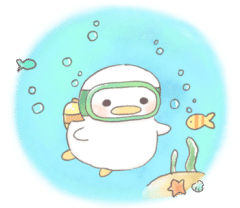At the End of the Hidden Greenery - Chapter 0.1

[Topography]
Two continents exist across a vast sea.
This sea is plagued by a natural disaster known as the Great and Small Vortex, which makes travel using conventional methods impossible.
The Great and Small Vortex refer to three massive, unceasing sea whirlpools that occur between the continents, as well as the storm that envelops them. This phenomenon is caused by the strong winds, currents, and the immense underwater roots of divine trees found in El Ragneil.
Due to its massive scale, it is as challenging for humans to explore the deep sea as it is to conquer this phenomenon despite its proximity. Although there are brief periods of calm, the vortexes never completely cease.
* * *
[Caranazion]
From a distance, Caranazion appears as a green-hued continent inhabited by humans.
It has an area comparable to Earth’s landmass.
The most powerful nation, the Karbauude Empire, is situated in the center, while the land becomes increasingly barren and inhospitable as one moves outward. Especially challenging is the ‘Outer Wall’, a region where the influence of the Empire is minimal, and it is teeming with beastly creatures, making it very difficult to access.
* * *
[Akarna]
The term ‘Akarna’ means ‘not originating from Caranazion’—A-Carana.
Akarna is a being that survived solely through sheer willpower in a dimensional rift. It later developed the ability to eliminate surrounding threats to adapt to unfamiliar circumstances.
Its innate adaptability and tolerance to unfamiliar laws are superior to those of other life forms. Due to its physical trait of ‘eliminating all threats,’ it does not easily tolerate or accumulate harmful substances. Consequently, it is immune to poisons, and waste is naturally disposed of.
Though Akarna can survive without consuming food, they prefer to eat for psychological comfort and taste, having originally lived in a world where food was necessary for health. However, it does not produce significant waste.
Over time, as Akarna’s existence extends beyond its previous life as a human, its food intake gradually decreases.
Akarna is also insensible to pain and aging, which were considered threats to life. In particular, with practice, it can reverse the effects of aging, though it cannot regress to a youthful state.
While they need to learn to speak to communicate, they perceive the lack of communication as a threat and can understand languages they do not know. Akarna’s powers are derived from their emotions and will; thus, its effectiveness diminishes if the mental state is poor.
Akarna can also affect others it recognizes as their kin, which implies that they can block effects against their adversaries. Furthermore, their powers can cause harm if the antagonism extends beyond mere hostility.
The influence of expelling miasma is derived from these emotions. However, excessive use of its abilities will temporarily halt their manifestation, requiring time and rest to restore its original strength.
In ancient times, Akarna was revered as a God on the continent of Caranazion due to its powers. The term ‘Akarna’ came to be used as an endearment term for a beloved partner, reflecting the wonder and affection it inspired.
However, once it became known that the blood, which embodies its vitality and the existence of rest periods, had beneficial effects, Akarna began to receive different treatment on Caranazion.
Notably, male Akarna do not exist.
* * *
[Outer Wall]
Originally, the term ‘Outer Wall’ referred to the area outside the walls of the empire. However, as the Empire expanded its territory through the influence of the temples and Akarna, it came to denote regions untouched by the Empire’s reach.
The further one moves from the imperial capital, the more intense the presence of the beasts becomes. The Outer Wall includes areas that were once considered ‘sacred places’, but these have since been damaged.
Beasts naturally appear in the Outer Wall, altering their surroundings to make them more habitable for themselves, which makes the environment increasingly inhospitable to humans over time.
Although Akarna’s power can purify the harsh conditions of the Outer Wall, the humans living there choose not to utilize this power.
* * *
[Alchemists of the Outer Wall]
These are the groups that continue to live in the Outer Wall while rejecting the Empire’s aid.
Originally, there was no specific term for them, but they came to be known as alchemists after acquiring knowledge from otherworldly races that had migrated from other continents.
Despite the worsening conditions, they refuse the assistance of the Empire and Akarna.
They occasionally attempt to capture Akarna from the empire, but not to use their power. Instead, they seek to either remove Akarna from the world or hide them, leading the Empire to label them as heretics.
While the Empire claims that only otherworldly races inhabit the Outer Wall, in reality, humans make up the majority of the population, including some who were originally devoted to the temples.
* * *
[Sacred Place]
This is a space created where dimensions collide. Though rare, it is a natural phenomenon that occurs more frequently in some places. While the exact cause is unknown, the full moon has a significant impact on its occurrence. The Sacred Place is named so because it was once where Akarna, revered as a God, would appear.
In the past, the human caretakers of the Sacred Place made efforts to ensure that beings from other dimensions who arrived there would recognize the presence of friendly humans. Now, all Sacred Places outside of the Empire’s temples have been damaged, and Akarna no longer appears outside these temples.
effe’s notes:
this is the official setting book that the author released after the IF story! with the ending of the IF story and the start of the new after story, please take your time to understand more of the worldview~




